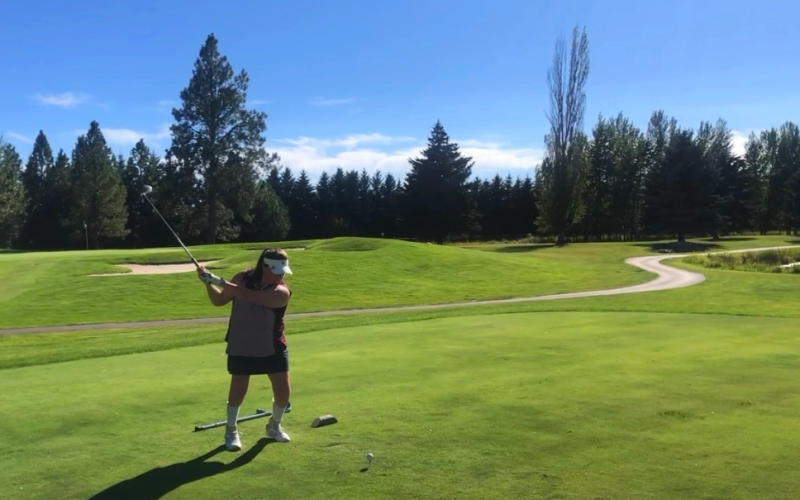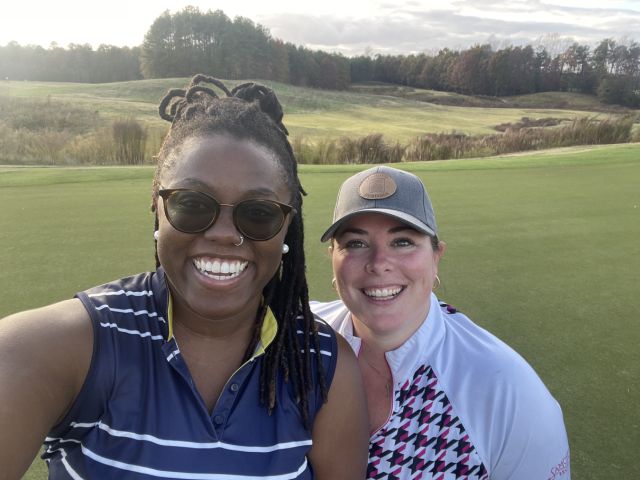5 Questions with Health Promotion Director Kelly Gorman

By Erin Frick
ALBANY, N.Y. (Nov. 15, 2022) — Kelly Gorman joined the University at Albany in August 2022 as the director of the newly formed Office of Health Promotion. The unit was created as part of UAlbany’s commitment to being a health promoting university — an aim that centers on the need to embed health and wellness into all facets of the campus community.
The Office of Health Promotion offers a range of resources and services focused on mental and sexual health, fostering healthy relationships with alcohol and other substances, nurturing healthy interpersonal relationships, and sexual violence prevention. It also offers resources, support and community for students in recovery, and hosts weekly recovery meetings on campus.
What is health promotion, and what drew you to this field?
At its core, health promotion is about values and empowerment. Every person is the expert on their own experience of health and knowing what is right for them. Health promotion can help individuals and communities identify and clarify values that are important to them, and then cultivate healthy relationships with those values and how they are expressed.
At the beginning of my first year of undergrad at William & Mary, I made the difficult decision to not play on the varsity lacrosse team, despite having spent my life up until that point on the field as a proud goalie. I made this decision because the level of preparation and recovery my body would need to perform optimally would limit my ability to engage in other aspects of my college experience. It was in this moment of identity crisis that I found health promotion. I connected with the college’s Office of Health Promotion and the peer health education program where I learned that there is no one “right” way to define well-being or engage in wellness-related practices.
As an individual with a visible physical disability, this felt revolutionary for me. I had never seen myself in health or fitness-related spaces, and always felt like the odd one out, which made me feel like there was something wrong with me. It was powerful to learn that the only “wrong” part of the picture is the common, yet narrow, conceptualization of health and well-being that does not include everyone. As I learned more, I felt drawn to working in and creating environments that support well-being in a way that allows everyone to flourish.
What sorts of health challenges are unique to the university setting?
Anyone involved in a university setting knows that the challenges to well-being are numerous. Students are stressed; we know some of them are experiencing sexual and relationship violence; rates of substance use are high — the list goes on.
We also know that this landscape has not changed much over the past couple of decades. What has changed is the recognition that we all have a role to play in supporting the well-being of all members of the university community. This includes those who teach and coach, as well as those who work in administrative roles. We are interconnected, so ensuring the well-being of all is critical. Embracing these connections allows us to collaborate and organize in ways that can transform our institution into a health-promoting one.
We also recognize that often the issues that produce unhealthy behaviors among students are reflections of the systems and structures that surround them. For example, if the default assignment submission time is midnight, students are encouraged to stay up late and miss sleep. Missing sleep compounds stress and causes all sorts of negative impacts on health. By setting submission times to 3pm or 5pm, not only does this mirror deadlines students are likely to experience later in their careers, but it also reflects values around well-being that lead to academic success.
This is just one way that shifting university policies can promote health.
Finals are just around the corner. What is your top tip for managing stress?
While it may seem counterintuitive, stress is an emotion of importance. It’s impossible to feel stressed about something that doesn’t matter to you. With that, the goal is to manage stress, not reduce it. The only way to reduce stress is to care less about whatever it is that’s important to you, and that would be such a shame!
As you manage your stress, it can be helpful to check in with yourself to see if you are engaging in self-care or if you are soothing, because these approaches will impact your recovery differently. Soothing activities are those that change your brain chemistry quickly such as through food, sex, drugs, pain, exercise or compelling entertainment. Some can be healthy, others are not. The issue is that we don’t moderate these activities well naturally and they tend to have a short-term, limited impact.
Self-care, on the other hand, refers to things you do to help process difficult emotions while pursuing what’s important to you. My favorite way to think about self-care is that it’s often the thing that feels hardest to do when you need it the most. It’s when you do something “for the health of it” — which leads to deeper feelings of restoration and rejuvenation. Self-care could take the form of verbal, creative or physical expression, meditation or even just taking time to read or spend time with friends.
Of course, no single approach to self-care will work for everyone. Rather, we all need to find and cultivate practices and routines that serve us as individuals.
Keep an eye out around campus and on social media for reminders to do things “for the health of it” — we are excited to start a community conversation!
What brought you to UAlbany?
When I first learned what health promotion was and experienced its transformative impact firsthand, I knew that one day I wanted to be a director of health promotion. In addition to being a leader, I wanted to be a leader where it mattered. UAlbany is at the forefront of health promotion in higher education — evidenced by its adoption of the Okanagan Charter. I am so excited to help lead the implementation of this charter and learn from the many brilliant people in this vibrant community. This role is an extraordinary opportunity and a perfect culmination of my passions.
As a bonus, Albany is a wonderful area, and the people here are so nice and welcoming! After living in NYC for a few years, it’s been unsettling (in the best possible ways) to experience such a supportive and friendly environment.
What do you enjoy doing in your free time?
I enjoy spending time with family and friends. I come from a big family — I am one of five with an identical twin sister, and now I have a nephew and a niece — so I jump at every opportunity to be with them!

I am also a golf fanatic! I love to watch golf, play golf, teach my fiancé to play golf (although she jokes that she does better without my instruction), and try to get other people interested in the sport. If you come by my office, you will understand... and possibly find yourself subjected to my influence!
Finally, I just began playing sled hockey. Sled hockey is the para version of ice hockey, and if you've never heard of it, I’d encourage you to learn more! In addition to being an awesome sport, I’ve found an incredible community and family in the team.




